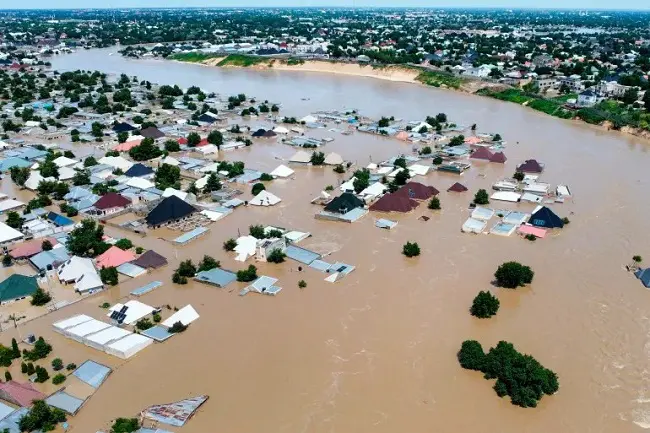The Health of Mother Earth Foundation (HOMEF) on Tuesday called for proactive action from the government to prevent a repeat of the Mokwa flood disaster.
The group made the call while expressing sympathy to victims of the recent flood that struck Mokwa Town in Niger State.
The ecology-focused group lamented that flooding has become a persistent nightmare in Nigeria, adding that in 2012, floods
affected 33 out of the 36 states following the rain that fell between July and October that year.
A statement by Miss Kome Odhomor, Media/Communication Lead at HOMEF
stated that floods displaced over 2 million people, resulting in more than 400 deaths and other associated destruction.
It also recalled that in 2018, the Benue and Niger Rivers overflowed due to heavy rainfall, causing flooding in 12 states, including Kogi and Niger States and four years later, in 2022, another severe flood killed over 600 individuals,
displacing more than 2 million others.
The group noted that the impacts of these floods have been catastrophic for communities and states.
“The May 29 flood was preceded by heavy rainfall that displaced over 3000 residents, destroyed properties, and claimed
over 200 lives, with many individuals still unaccounted for.
“While mourning this tragic loss, HOMEF emphasises that the government must take proactive measures to prevent similar or worse incidents from occurring in the future,” HOMEF stated.
Read also:
- Buhari mourns over 170 lives lost in Niger flood, Kano auto crash
- NEMA records151 bodies of Mokwa flood victims, 3, 018 displaced victims
- 25 lives lost, 9,352 households affected by 2024 flooding in Enugu – NEMA
The statement quoted the Executive Director of HOMEF, Nnimmo Bassey, in his reaction to
the recent flood incident in Niger State, as noting that communities and cities in flood-prone areas could seize to exist if nothing is done to address the menace.
“This is a horrendous recurring decimal. There is no word to describe our lack of preparedness and our ill-maintained infrastructure.
“Combined with insecurity and the fact that more rain is expected, the displacement problems will be compounded. There is no time for excuses.
“This is the time to declare an environmental state of emergency across the board. This national emergency can impact our national well-being by leading to food scarcity, environmental degradation, mass displacement,
increased poverty, water-borne diseases, and exacerbate insecurity,” he said
Bassey drew attention to forecasts and early warnings from different agencies, including the National Emergency Management Agency
(NEMA).
He expressed disappointment, emphasising that these warnings become meaningless if provisions are not made to move people and settle them on safe and higher ground.
